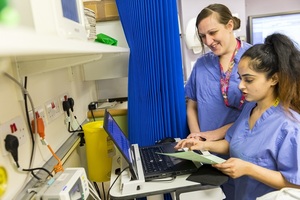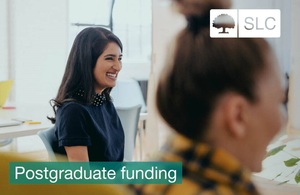Good afternoon everyone, and huge thanks for inviting me to this Council for Sustainable Business COP26 business leaders event.
I am really sorry I can’t be with you live, so to speak, but as this event is taking place, I am in the House of Commons Chamber, setting out our latest set of reforms to help businesses bounce back from the pandemic.
Of course, governments and businesses around the world are having to respond to the immediate and acute challenges posed by the pandemic.
But what we also know is that the climate crisis has not taken any time off.
Of course we do still have some time left to define the future when it comes to combating climate change.
But we have to act now. For this to be successful, it ultimately has to be a joint endeavour between nations, civil society and businesses.
In response to the pandemic, we are seeing countries around the world bring forward green recovery packages.
I do think this will provide an impetus for positive change.
Here in the UK, working with business, we have shown that green growth is absolutely possible.
Between 1990 and 2018, the UK economy has grown by 75% and at the same time, we have managed to cut emissions by 43%.
We have done this by working together and building entirely new industries.
Let me give you some examples. 20 years ago, the UK had two offshore wind turbines, powering just two thousand homes.
Fast forward to 2020, and the UK has more offshore wind capacity than any other country in the world.
Earlier this year, construction began at the world’s largest offshore wind development, Dogger Bank.
This is a project which, when complete, is going to be able to power four and a half million UK homes.
The cost of wind power globally has fallen by almost 50 percent.
The cost of solar power is down by 85 percent since 2010.
Renewables are cheaper than coal power in two thirds of all countries.
And we have made progress because countries, cities, regions, and ultimately business, have led the way.
We have seen a shifting of investment priorities. There’s no doubt about that.
We’ve seen the spurring on of innovation.
The scaling up of technologies
And all of it, driving down costs.
I believe there is a real momentum building
The business community has collectively understood that building a green economy isn’t just good for the environment, it’s actually also good for the bottom line.
Let me give you some examples from a number of companies at this event which are driving forward their own green agenda.
SSE has committed to spend more than 7 billion pounds on low carbon infrastructure projects over the next 5 years.
Unilever has committed to reach net zero emissions from all its products by 2039.
And Arup has made a commitment to be a net zero organisation by 2030.
I know many of you will have made similar commitments on the path towards net zero.
So as we look forward to COP26 next November, our aim is to ramp up ambition towards a climate-resilient, zero-carbon economy.
We want all countries to submit more ambitious Nationally Determined Contributions, driving further cuts in carbon emissions by 2030.
And we want all nations committing to reaching net zero emissions as soon as possible.
Ahead of the summit, we have defined five areas which need particular attention: clean energy, clean transport, nature-based solutions, adaptation and resilience, and tieing the whole thing together, finance.
Your contribution will be central to driving change in these areas.
I have four concrete asks from you.
First on clean energy.
Business has already played a big part in the clean energy transition.
But we need more companies to commit to 100 per cent renewable sources by 2050 at the latest, through the ‘RE100’ initiative and the Powering Past Coal Alliance.
So please, sign up to both initiatives.
Second, zero emission road transport. We must accelerate on this path.
The government, as you know, is consulting on bringing forward the end of the sale of new petrol, diesel and hybrid cars and vans from 2040 to 2035.
Or indeed earlier, if faster transition is feasible.
So we want manufacturers and businesses to accelerate this transition.
Join the EV100 campaign and commit to all of the vehicles you own or operate being zero-emission by 2030.
Third, for all you bankers, asset managers, financiers and insurers at this event, we want to see further progress on the Task Force on Climate-Related Financial Disclosures agenda.
We need you to continue to sign up to the recommendations of the TCFD to build a greener and more resilient financial system.
Please, join the Coalition for Climate Resilient Investment to help transform infrastructure investment, by integrating climate risks into decision making.
My fourth and final ask is to urge you to join the Race to Zero Coalition.
This initiative launched by the High Level Champions for COP25 and COP26 a month ago is the largest ever alliance of businesses and non-state actors committed to reaching Net Zero by 2050 at the latest.
And let me assure you, if you sign up, you’re going to be in pretty good company.
Around one thousand companies around the world have already signed up.
We all understand that we are in a difficult place in terms of the global economy right now.
But it is always darkest before the dawn.
And I fervently believe that COP26, and the footsteps leading towards it, can be the moment when the world comes together to ramp up momentum towards a climate-resilient, zero-carbon economy.
Business is absolutely an integral part if our journey is to be successful.
So thank you for all you are doing, and let’s renew and re-energize our efforts.
Thank you.


